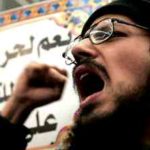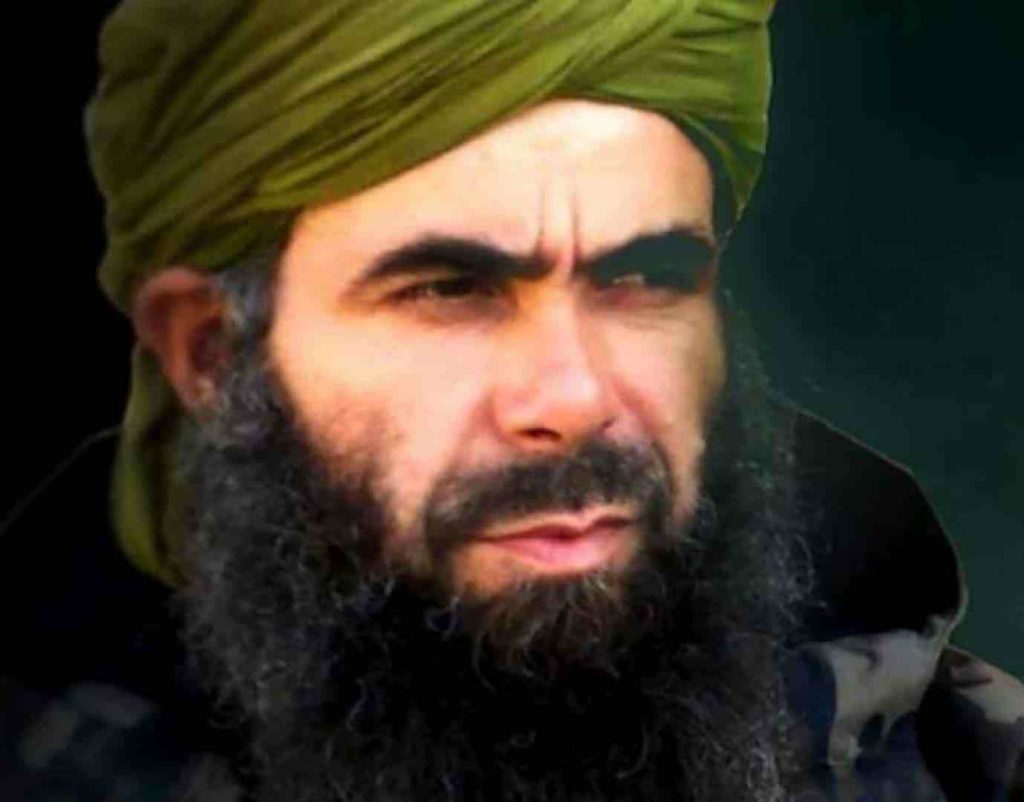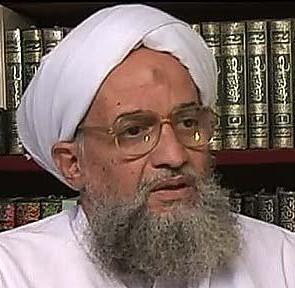
Terrorist acts are often seen as the work of the marginalized, the deviant and the untouchables who have failed to integrate into the prevailing social frameworks and standards and are unable to identify with the familiar professional systems and ways of thinking. We shall here take a psychological and epistemological approach to the phenomenon.
THE TERRORIST ACT is feared and cursed, and the perpetrator embodies the other who must be entirely different from us, one who simply cannot share our culture and knowledge. This reassuring duality between us and them establishes markers of separation and legalizes control mechanisms. It thus eliminates all confusion between us and them, between the learned and the ignorant, between the abnormal and the normal, and between the decent and the deviant.
Many studies, however, have shown that the majority of those who join extremist movements are ordinary citizens, including successful students, and many of them have higher degrees. In fact, many of them are graduates of faculties of medicine, engineering, and technical sciences, disciples which are considered distinguished and ‘prestigious’ in the Arab world. A field study carried out by Diego Gambetta, sociologist at the University of Oxford and Stephen Hertog of Durham University, examined the cases of 404 young men who had turned to extremism and terrorism. It revealed that Islamists who studied disciplines such as exact sciences, engineering or medicine were most represented among the educated members of violent Islamist jihadist groups.[1]
The field study mentioned several leading armed activist personalities in the Maghreb, such as ‘Abd al-Malik Droukdel known as ‘Abū Muṣʽab ʽAbd al-Wadūd’ and the leading figure in the Maghrebi branch of Al-Qaeda, who distinguished himself in the technological sciences, specifically in electronics and chemistry. This was also the case with the leader of the terrorist ‘Al-Gamā’ā al-Salafiyya’ group Nabīl Ṣaḥrāwī nicknamed ‘Muṣṭafā Abū Ibrāhīm’, who holds an engineer’s degree in hydromechanics. Yaḥyā Jawādī, nicknamed ‘Yaḥyā Abū ʽAmmār’, is currently the leader of the organization’s brigades in the desert, and also numbers among those with a university degree, in which he studied the exact sciences. Many other terrorist leaders have been monitored, starting from the doctor Ayman al-Ẓawāhirī to the engineer Usāma bin Laden, and including Muḥammad ʽAṭṭā’ who graduated as an architect and then went on to carry out the September attacks. And there are many others.[2]
The development of hypothetical deductive intelligence can sometimes take place at the expense of aesthetic, emotional and social intelligence
The question posed is why do the educated and the distinguished engage in the logic of violence, bloodshed, and the beheading of anyone who opposes or disagrees with them? Why did the level of intelligence and the development of mental capacities not form a barrier or immunity to such barbarous and chaos inducing schemes? How is that our faculties and scientific poles can churn out terrorists and slaughterers?
We can’t claim any ability to comprehensively address the various dimensions of this strange phenomenon. However, in trying to understand this paradox – the relationship between scientific disciplines, extremism and terrorism – we have to look for objective factors and subjective motives that induce technicians and specialists in exact sciences to embrace violent, takfīrī and irrational religious discourses.
The scientist Goldman points out that abstract intelligence, that is, the intelligence in physics and mathematics, bears a limited relationship to excelling talent and integration. This form of intelligence provides only 20% of the elements that determine success in life. It was also noted that for the vast majority of those who achieve decision-making positions in society this factor of intelligence did not determine their distinction. It was rather many other factors that did this. One of the determinants of success was emotional intelligence, that is, the individual’s ability to control and monitor his emotions, and the ability to regulate his psychological state and prevent it from paralyzing and disrupting his ability to think and work.[3] Emotional intelligence skills also help the individual to co-operate with colleagues and feel sympathy and empathy with the other in order to understand him and his point of view, and conduct his life in a flexible, efficient and effective way.
It seems that the growth and development of hypothetical deductive intelligence, that is, abstract intelligence, sometimes take place at the expense of other types of intelligence, such as aesthetic, emotional and social intelligence, elements vital to forming a coherent and balanced personality. It may be that this cognitive factor can explain the involvement of graduates from scientific and technical faculties in extremist organizations.
In the same context, unemployment among high school graduates appears to be an important factor in the spread of this phenomenon. Members of the educated lower middle class suffer from economic crises that can leave them vulnerable to mechanisms that constrain knowledge into a logic of profit, the laws of free trade, and the requirements of the market. Suffering from the collapse of its social status and the decline of its symbolic capital, members of this educated class find themselves living in a state of contradiction between their ideal self-image and their material reality, along with others’ perception of them. They suffer from a disconnect between their scientific and professional status that motivate them, along with their social status and with the privileges they feel are their due, and the widespread contempt for science and knowledge as opposed to the higher status of show-business and commerce.
In times of crisis, when the individual’s expectations with regard to his social status and the perceptions of others towards this status become ambiguous and unclear, he turns his back on prevailing values and seeks refuge in religious or mystical preoccupations. This is what Max Weber noticed when he studied the followers of the religious groups made up of members of the lower middle class and which he called the prolateroïde.
Scientific disciplines in universities are marked by passive reliance, in that they push the students towards viewing things exclusively from one of two perspectives
It is here that the narcissistic wound, the deep feeling of inferiority and humiliation, turns into a sense of religious and moral superiority. For these afflicted masses, extremist organizations offer simple and easy answers, manipulate their anxieties and hopes, and exploit their anger and frustration. Some studies have confirmed that terrorism represents a new economic bracket that is itself subject to the logic of supply and demand, of profit and loss.[4]
In this respect terrorist organizations seek to recruit highly qualified technicians and engineers in order to ensure the efficiency of their operations and increase their profits. Specialists from the scientific sector have high levels of competence and skill, which qualifies them to carry out complex military tasks such as planning, media and informational propaganda, the manufacture of weapons and explosives, and so on. On the other hand, these also join extremist groups from material incentives and attractive symbolic advantages. Joining extremist organizations permits them to attain positions of leadership, influence and prestige, things that the division of labour in the traditional economic system does not afford them.
On the other hand, the scientific disciplines in our universities are marked by passive reliance, in that they push the students towards viewing things exclusively from one of two perspectives (there being no third): things are either right or they are wrong, and there cannot be a middle ground. This training limits their ability to discuss and debate, and sabotages their critical thinking skills.

Suggested Reading
Scientific knowledge, that is knowledge produced by specialists in their fields, is knowledge that has passed through extended historical trajectories and circumstances, in which there were periods of success, failure and pause before finally turning into pure knowledge. Such knowledge is necessarily complex, multi-layered, and open, and founded today on probability, doubt, and the accommodation of contradictions.
Knowledge of this nature is only approached by the researcher at the postgraduate level. It is a knowledge that is imparted through ‘didactic transfer’, so that it becomes ‘knowledge capable of being taught. As such it turns into a set of formal, closed and simplified elements of knowledge, elements that are passed on to students in educational institutions in the form of fixed principles and absolute certainties. This type of education shapes an individual’s psychological structure, and thus develops in them a passively reliant and closed mindset that rejects relativism and pluralism.
[1] Cf another study by the Egyptian activist and sociologist Saad Eddin Ibrahim. He interviewed 34 members of two of the militant groups, and found that 29 of them were either undergraduates or graduates. Among these 25, Ibrahim noticed that 9 were engineers, 6 were doctors, 6 were agricultural engineers and pharmacists, 2 were studying technical military sciences, and only one was studying literature.
[2] Diego Gambetta and Steffen Hertog, “Why are there so many Engineers among Islamic Radicals?”, European Journal of Sociology, Vol. 50 (02), August 2009, 201-230.
[3] Daniel Goldman,(1997). L’Intelligence émotionnelle: Comment transformer ses émotions en intelligence. Paris: R. Laffont.
[4] Becker G. (1968), ‘Crime and punishment : An economic approach’, Journal of Political Economy, vol. 76, n° 2, March-April.


